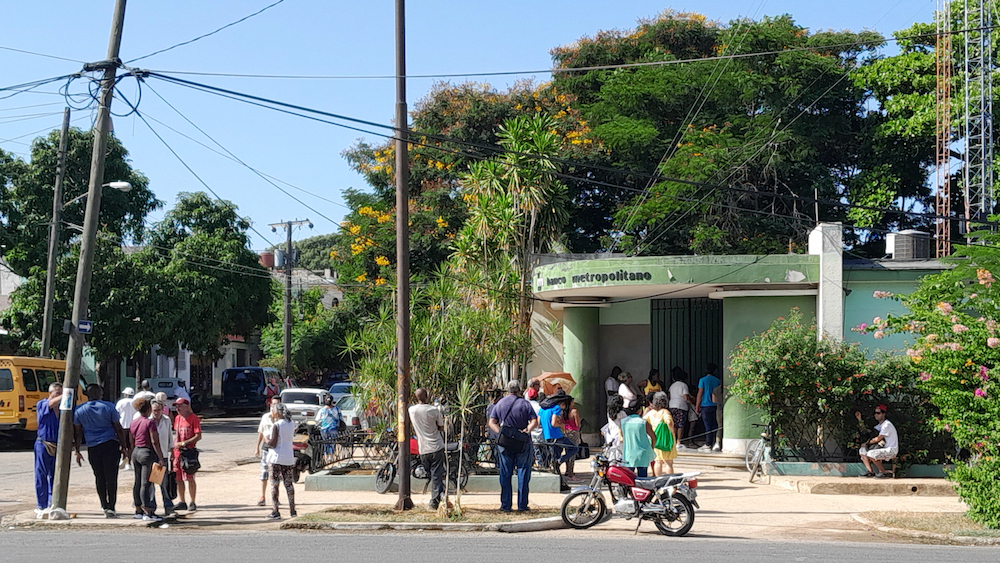Something is terribly wrong in a country where the black market for dehydrated milk is infinitely greater than that for cocaine, and where that for antibiotics and cytostatic serums is more widespread than that for firearms.
Every black market is, primarily, a political reaction, because it is not scarcity, but rather the barriers that the authorities put on trade, that give rise to illegal exchanges. Therefore, this type of underground trade is more widespread not where there is less supply, but rather where there are more prohibitions.
As a form of subversive resistance to the elite that monopolizes the State, the black market is always targeted under the pretexts of public health, collective security, fiscal control and other justifications, all of which reaches a paroxysm when, as in Cuba, control of the individual is essential for the political caste's survival.
Thus, the Castroist system strives to prevent individual autonomy and horizontal relationships between citizens as much as possible, imposing vertical relations between the people and a government that appropriated resources and powers to become essential for the people's subsistence.
Under this totalitarian scheme, the black market is especially threatening to the powers that be and, probably, the last stronghold of freedom, as through it not only are goods exchanged, making possible activities that the Government prohibits, but information and examples of personal development are also communicated, of Cubans contemptuously termed bisneros, or negotiators, independent of a power that imposes itself as one indispensable for social stability.
Therefore, those who want a free Cuba must embrace and sustain its black market, just as those who want a subjugated Cuba fear it and endeavor to destroy it by eliminating the technology that makes it possible: cash.
The most underrated characteristic of cash, due to its limited economic relevance, is its anonymity, which, however, is a politically transcendental one, so much so that the future of freedom in Cuba depends on this medium not being replaced by traceable means of payment, through which individual activities can be known and discretionarily controlled.
Two years ago Castroism began to intensify its efforts to eliminate cash through bankarization, and since then we have been warning readers of the threat that looms over Cuba, since bankarization would complete the totalitarian circle, giving the Government such a capacity for control that it would place civil society in check-mate, removing any capacity for response and protest. Individuals would be absolutely at the mercy of the State, which could easily monitor their actions, travel, interactions and expenses, and not only for fiscal reasons, but mainly for political ones.
Fortunately, the depletion of Cuba's material reserves —infrastructure, foreign currency, labor— has hampered the advance of this Totalitarianism 3.0, but it is an issue that Castroism has not lost sight of, and, although slowly, it continues to advance and dedicate resources to it; among other things, because it is perhaps the only point where an increase in social control converges with an increase in economic efficiency.
Deputy Minister of Communications Ernesto Rodríguez recently stated that this delay is not due to a lack of resources, but rather "a cultural rather than technological issue," such that "work must be strengthened at the territorial level in terms of the requirement that electronic payment be present at each entity, at each business where a service is provided."
"We must ensure that all commercial establishments in the country, whether state or private, have electronic payment enabled," Rodriguez said. In other words, this means that, although people are wary of bankarization, they will force it upon them.
Fortunately, if Castroism is consistent in any area, apart from prioritizing its power over the well-being of the people, it is in its infinite capacity for failure; thus, although there are already electronic commerce devices at 64% of bodegas, 90% of Cimex stores, and 36% of Caribe stores, only 1.1% of total payments have been made by this means, according to Inalvis Smith, Deputy Minister of Internal Trade.
Despite its dramatic failure to implement electronic commerce, the Government is now supported by the Russians, for whom it would be ideal to bankarize Cuba for the same reasons that it would be for Castroism. Not surprisingly, the Sputnik press release, which revealed the rapprochement between the two dictatorships, highlighted that Boris Titov, the mafioso tapped by Putin for the recolonization of Cuba, emphasized that "the role of the banks in the system described is very important, they are the ones who create the platform on which it is based" and "the participants in the discussion emphasized that, within the framework of the concept, in Cuba cryptocurrencies —anonymous means of exchange— should not circulate."
Will there be enough Russian investment to fund the technology needed to minimize the use of cash in Cuba? Will the combined interest of both dictatorships, which seem to be teaming up to exploit even more the Cuban people, including emigrants, prove greater than Castroism's tendency to fail? Russia's internal problems call into question its capacity for this Caribbean adventure, but Moscow's central power is not the only economic one in Russia.
What is clear is that reducing and eliminating cash transactions is a high-priority objective for Castroism, which, weary of waiting to get there by evolution, has decided to impose it by the force of law, which is worrisome because, although freedom has in its favor the Cuban regime's long history of failures, unfortunately it has against it the scant attention that the media pays to the consequences of bankarization on politics in Cuba. Hopefully this will change soon.
